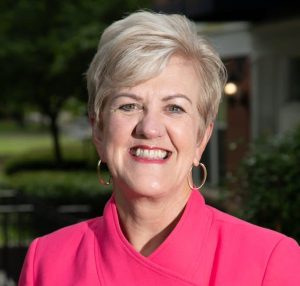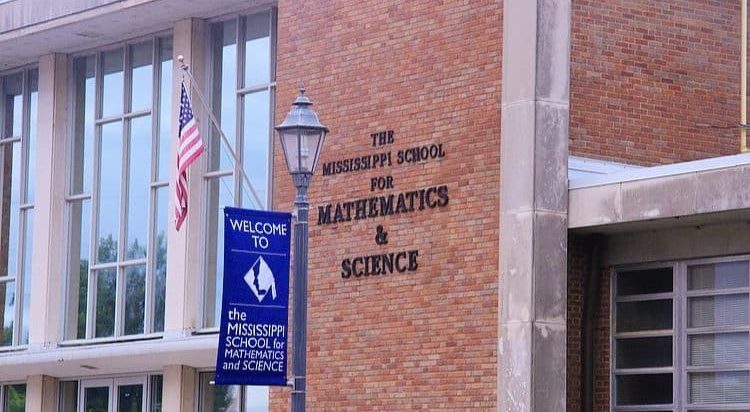After the State Board of Education called on local lawmakers to mull over the prospects of relocating the Mississippi School for Mathematics and Science from its current home to a new location, one leader has been vocal in criticizing the process as “biased” and “unfair.”
Nora Miller, the president of the Mississippi University for Women, the host site of MSMS for nearly 38 years now, is blasting state education officials for an alleged attempt to steer the legislature to move forward with a proposal to move the residential magnet school to Mississippi State University.
MSMS was established during the 1987 legislative session for academically gifted high school juniors and seniors. It has been housed at MUW in Columbus since its inception. However, MSMS officials have contemplated the prospect of relocating to Starkville in the past.
Back in December 2024, the State Board of Education launched a subcommittee to assess ways to strengthen the school’s operations and ensure the continued growth of the academic institution. The board specifically tapped MUW and MSU to submit proposals, and after reviewing both submissions, unanimously called on the state legislature to move forward with a bill to relocate MSMS about 25 miles west to Starkville.
The process, however, has been called into question by Miller, who believes there was already a spiral set in motion to move MSMS to MSU as part of the next phase of facilitating Starkville public schools on the college’s campus. Though she didn’t go as far as to explicitly call the process “rigged,” Miller argued that there appeared to be an agenda at play, one that put MUW at a clear disadvantage.
For starters, Miller said she was only given 17 days to submit a formal request for proposal to vouch for MUW to keep MSMS on its Columbus campus. She also contended that she was given no official rubric for how the RFPs would be graded, leading her to believe that there were already premeditated votes in MSU’s favor before the process even began.
“We really have a problem with the whole process. The way it was laid out was not the normal procedure for an RFP. When I got the request, I questioned why it was just the two universities and not all of the eight public universities (in Mississippi) given this opportunity,” Miller said.

“We really feel that the process that was followed was unfair,” she continued. “It was biased. It was a predetermined decision. The request for proposal referenced engineering schools, which we don’t have. I also had questioned how the proposals would be graded, what the rubric was, and I was told that they would develop that after they received the proposals.”
Miller further asserted that the proposals submitted by the two higher learning institutions drastically differed. MUW’s plan hinged on the state providing roughly $60 million to build new residential facilities and give existing ones a facelift. Miller argued that this funding is long overdue, given that the state has not made a “significant” investment into MSMS’ facilities since the school’s inception.
Meanwhile, MSU’s proposal seeks roughly $86 million in taxpayer dollars to construct new facilities and dorm spaces for MSMS students on the university’s campus. MSU, in collaboration with the Starkville Oktibbeha Consolidated School District, is eyeing MSMS to be part of the next phase of expansion. The university currently hosts Partnership Middle School — the nation’s only school that serves all district students in partnership with a college or university.
The goal is to have everything up and running at the start of the 2027-28 school year if given the green light by lawmakers.
“We addressed the ongoing cost of maintaining and providing services for MSMS. Mississippi State’s proposal did not address that. They were talking about the cost for facility needs and building a campus within the Starkville-Oktibbeha County School District’s Partnership School,” Miller continued. “There would be classes that Starkville-Oktibbeha County students would be taking with the MSMS students, so there were just a few things there that I felt were not given real consideration.”
Further, Miller claimed that any plans to move forward with MSU’s proposal would be a proverbial slap in the face to taxpayers not residing in the Starkville area. Calling the topic a “statewide issue,” Miller noted that Mississippians ought to be prepared to call their local lawmakers and ask why the state isn’t investing similar levels of funding in public schools across the board.
“This really affects every taxpayer in the state of Mississippi,” Miller said. “Wherever you live, you should expect that if the state is going to invest $85 million in a high school for Starkville-Oktibbeha County, then I think everybody else needs to be asking their legislator, ‘Where’s the money for my high school?’ So this is a statewide issue.”
Miller is hoping that talks of relocating MSMS are squashed ahead of the 2026 legislative session, which will begin in January. But for now, MUW remains the host site for the magnet school.








